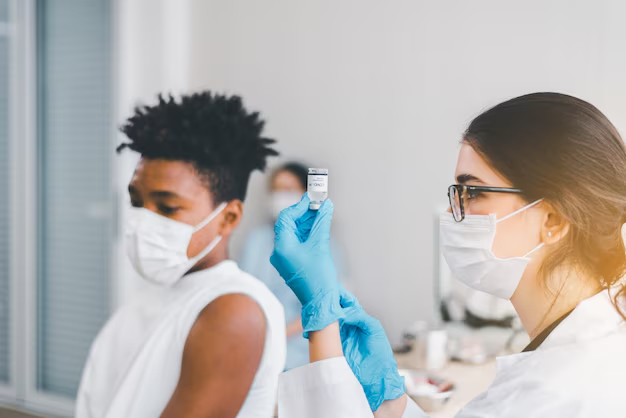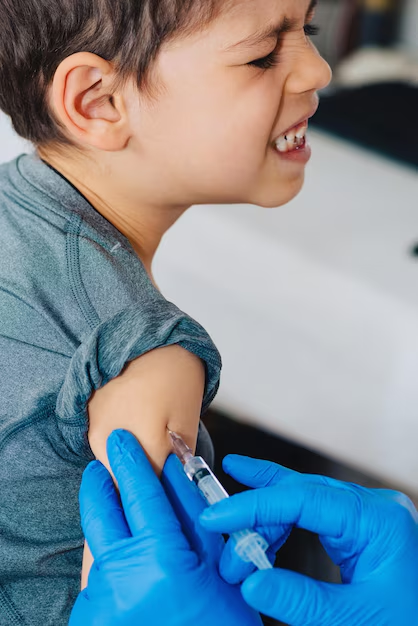Last updated on December 27th, 2024 at 05:40 pm

Contents
There are no generic vaccines currently available on the market. Vaccines are complex biological products that are produced using a variety of methods and are designed to stimulate the body’s immune system to protect against specific diseases. Because of the complex nature of vaccines and the specific requirements for their production, it is not possible to produce generic versions of vaccines in the same way that generic versions of other medications are produced.
What is the difference between branded and generic?
Branded and generic drugs are terms used to describe different types of pharmaceutical products.
- Branded: Branded drugs are also known as brand-name drugs or innovator drugs. These drugs are developed, manufactured, and marketed by pharmaceutical companies that have obtained a patent for a new drug molecule or formulation. Branded drugs are typically sold under a specific brand name chosen by the manufacturer, and they are protected by patent law, which gives the manufacturer exclusive rights to sell the drug for a certain period of time. Branded drugs are usually more expensive than generic drugs, as the manufacturer has invested in research and development, clinical trials, and marketing to bring the drug to market.
- Generic: Generic drugs are copies of branded drugs that contain the same active ingredients, dosage form, strength, route of administration, and intended use, but are marketed under their generic (chemical) name instead of a brand name. Generic drugs are typically manufactured by different pharmaceutical companies after the patent for the original branded drug has expired or when there are no more legal barriers to producing generic versions. Generic drugs are usually less expensive than branded drugs, as the manufacturers of generic drugs do not have to invest in research and development or extensive marketing efforts.
It’s important to note that generic drugs are required by regulatory agencies, such as the U.S. Food and Drug Administration (FDA) and the European Medicines Agency (EMA), to undergo rigorous testing to demonstrate their safety, quality, and effectiveness before they can be approved for sale. Generic drugs are considered equivalent to their branded counterparts in terms of safety, efficacy, and quality, and they are often used as more cost-effective alternatives to branded drugs, especially when it comes to availability of affordable medicines in developing countries or in cost-conscious healthcare systems. However, it’s always recommended to consult with healthcare professionals and follow their advice when it comes to choosing between branded and generic drugs, as individual circumstances may vary.
What is a branded generic?
A branded generic, also known as a branded generic drug or brand-name generic, refers to a pharmaceutical product that is a generic version of a brand-name or innovator drug, but is marketed under a brand name by a pharmaceutical company. In other words, a branded generic is a generic drug that is given a brand name by the manufacturer or marketer, different from the brand name used by the original manufacturer of the innovator drug.
Branded generics are typically equivalent to the original innovator drug in terms of active ingredients, dosage form, strength, route of administration, and intended use. They undergo regulatory approval and are required to meet the same standards for safety, efficacy, and quality as the innovator drug. However, branded generics are often priced lower than the innovator drug, making them more affordable options for patients.
The branding of generic drugs can be done by pharmaceutical companies as a marketing strategy to differentiate their products and create brand recognition. Branded generics may also include additional features such as distinctive packaging, labeling, or formulation to further differentiate them from other generic versions of the same drug.
It’s important to note that the availability and regulations regarding branded generics may vary by country and region. It’s always recommended to consult with healthcare professionals or local health authorities for accurate and up-to-date information on generic drugs, including branded generics, in your specific location.

Total vaccines available in market
There are currently numerous vaccines available for a wide range of diseases and conditions. The exact number of vaccines can vary over time as new vaccines are developed and approved, and as older vaccines may be phased out or updated. As of my knowledge cutoff date in September 2021, there are more than 150 vaccines that have been authorized or approved for use globally. This includes vaccines for infectious diseases such as influenza (flu), COVID-19, measles, mumps, rubella, polio, hepatitis B, human papillomavirus (HPV), tetanus, diphtheria, pertussis (Tdap), varicella (chickenpox), meningococcal disease, pneumococcal disease, and many others.
It’s important to note that the number of vaccines may change over time as new vaccines are developed, approved, and introduced into healthcare systems. Vaccines are a vital tool in preventing the spread of infectious diseases, protecting individuals, and promoting public health. It’s recommended to consult with healthcare professionals or local health authorities for the most up-to-date and accurate information on vaccines.
List of vaccines avaialable in india
As of now cutoff date in September 2021, the following vaccines are available in India for various diseases and conditions:
- Covishield (AstraZeneca/Oxford vaccine) – Used for COVID-19
- Covaxin (Bharat Biotech) – Used for COVID-19
- Sputnik V (Gam-COVID-Vac) – Used for COVID-19
- Rotavirus vaccine (e.g. Rotavac, Rotasil) – Used for preventing rotavirus infection in infants
- Inactivated poliovirus vaccine (IPV) – Used for polio immunization
- Oral poliovirus vaccine (OPV) – Used for polio immunization
- BCG vaccine (Bacillus Calmette-Guérin) – Used for tuberculosis (TB)
- Hepatitis B vaccine – Used for hepatitis B prevention
- Measles, mumps, and rubella (MMR) vaccine – Used for measles, mumps, and rubella prevention
- Diphtheria, tetanus, and pertussis (DTP) vaccine – Used for diphtheria, tetanus, and pertussis prevention
- Haemophilus influenzae type b (Hib) vaccine – Used for Haemophilus influenzae type b prevention
- Pneumococcal conjugate vaccine (PCV) – Used for pneumococcal disease prevention
- Human papillomavirus (HPV) vaccine – Used for HPV prevention (specifically for females to prevent cervical cancer)
What are the 5 most common vaccines in India?
The most common vaccines used in India can vary depending on factors such as local health policies, vaccination programs, and prevalent diseases. However, some of the commonly used vaccines in India, based on their widespread use and impact on public health, include:

- Polio vaccine: India has made significant progress in polio eradication, and the polio vaccine is an essential part of routine immunization programs in the country. Both inactivated poliovirus vaccine (IPV) and oral poliovirus vaccine (OPV) are used in India to protect against polio, a viral disease that can cause paralysis and death.
- Measles, mumps, and rubella (MMR) vaccine: This vaccine is used to protect against measles, mumps, and rubella, which are viral infections that can cause serious complications, including pneumonia, encephalitis, and birth defects. MMR vaccination is typically administered as part of routine childhood immunization programs in India.
- Hepatitis B vaccine: This vaccine is used to protect against hepatitis B, a viral infection that affects the liver and can cause chronic liver disease, cirrhosis, and liver cancer. Hepatitis B vaccination is typically given as part of routine immunization programs for infants and children in India, as well as for high-risk populations such as healthcare workers and individuals with high-risk behaviors.
- Tuberculosis (TB) vaccine: The Bacille Calmette-Guérin (BCG) vaccine, which is a vaccine against tuberculosis, is commonly administered in India. TB is a bacterial infection that can affect the lungs and other organs and is a significant public health concern in India, with a high burden of TB cases.
- Tetanus-diphtheria-pertussis (Tdap) vaccine: This vaccine is used to protect against tetanus, diphtheria, and pertussis (whooping cough). Tdap vaccination is typically given as part of routine childhood immunization programs and may also be recommended for adolescents and adults in India to maintain immunity against these diseases.
It’s important to note that vaccine recommendations and availability may change over time and vary by region, and it’s always recommended to consult with healthcare professionals or local health authorities for the most up-to-date and accurate information on commonly used vaccines in India. Vaccination is a critical public health measure to prevent the spread of diseases and protect individuals from infections.
Please note that the availability and usage of vaccines may change over time, and it’s important to consult with healthcare professionals or local health authorities for the most up-to-date and accurate information on vaccines in India or any other location. Vaccination is an important public health measure to prevent the spread of diseases and protect individuals from infections.
If you have any questions about vaccines, you should speak with your healthcare provider. They will be able to provide you with the most accurate and up-to-date information about the available vaccines and help you determine which vaccine is appropriate for you or your child.
Visit Medkart.in website or download Medkart application and checkout availability of your medicines and vaccines.
To know more watch – https://youtube.com/shorts/3fPk3iYF7Bw

